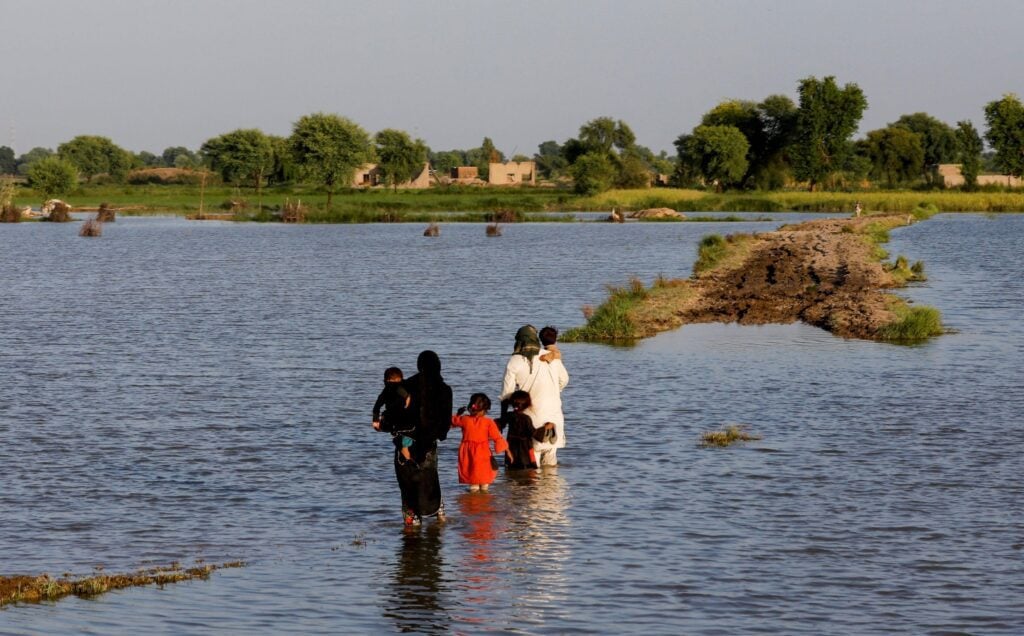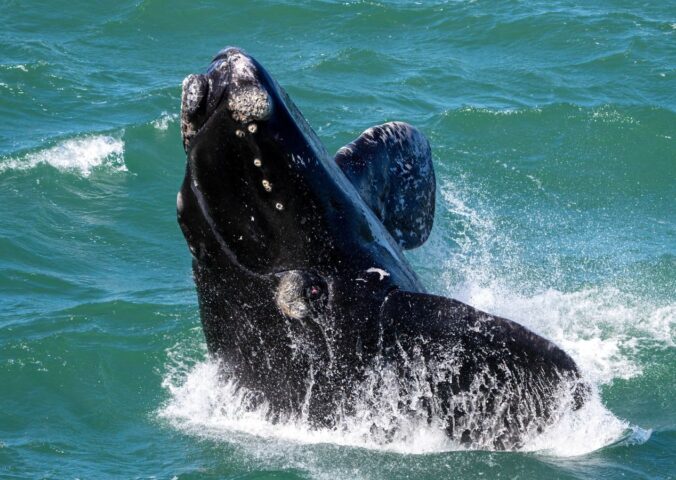António Guterres, the UN’s secretary-general, is pleading with the world to offer Pakistan “massive” help. The South Asian country is currently dealing with “super floods” made more likely by the climate crisis.
Countries, including the US and the UAE, have sent aid, but more needs to be done, said the secretary-general.
Since the middle of June, Pakistan has experienced record-breaking levels of monsoon rain (three times what the country is used to). This has led to rivers bursting their banks and huge, life-threatening floods.
So far, it’s thought that around 1,500 people have died. UNICEF, the UN’s children emergency fund, estimates that around 3.4 million children now need urgent, lifesaving support as a result of the floods.
Last week, scientists stated that the climate crisis may have increased the intensity of the monsoons.
While rainfall events are difficult to assess, Friederike Otto of Imperial College London told the BBC: “Our evidence suggests that climate change played an important role in the event, although our analysis doesn’t allow us to quantify how big the role was.”
‘Today in Pakistan, tomorrow in any of your countries‘
As he appealed for more help from around the world, Guterres pointed out that despite the level of suffering in Pakistan caused by the climate crisis, the country contributes less than one percent of global emissions.
He said: “We are heading into a disaster. We have waged war on nature and nature is tracking back and striking back in a devastating way. Today in Pakistan, tomorrow in any of your countries.”
“Pakistan has not contributed in a meaningful way to climate change, the level of emissions in this country is relatively low,” he added. “But Pakistan is one of the most dramatically impacted countries by climate change.”
Guterres went on to label rising emissions as “global suicide” and called for more investment in renewable energy.
Meat and the climate crisis
As well as a move to renewable energy, in the last few years, more and more scientists have called for a move to a more sustainable plant-based food system.
Right now, animal agriculture contributes to 14.5 percent of global emissions. It’s also a leading driver of deforestation.
In April of this year, researchers from the University of Bonn in Germany called for rich countries to cut their meat consumption considerably, by at least 75 percent, to help mitigate the climate crisis.
“If all humans consumed as much meat as Europeans or North Americans, we would certainly miss the international climate targets and many ecosystems would collapse,” lead author Dr. Matin Qaim said at the time.
Speaking about the events in Pakistan, Guterres urged all governments to address the climate crisis urgently.






